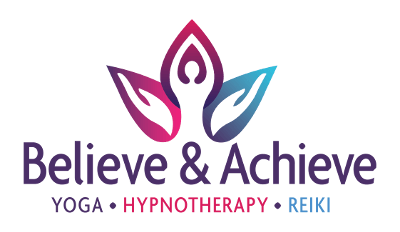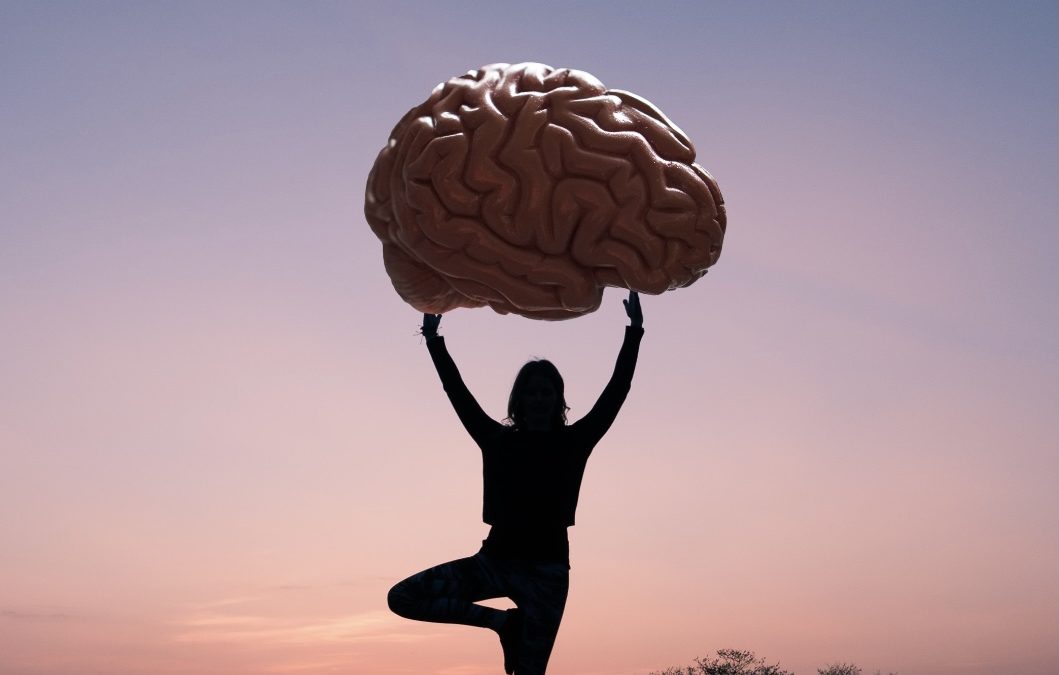Anxiety, The Brain & Yoga (5 min read)
I’ve practiced yoga for a little over 10 years and been a Hatha Yoga instructor for about 4 years. I remember my first yoga class well and looked around and thought – what’s all this about? – I don’t really get it. However, I persevered and grew to love it. Its always interested me how yoga can help the mind as well as the body, bearing in mind the different styles of yoga I have practiced, didn’t spend long on meditation per session. When I qualified as a clinical hypnotherapist it all began to make sense. I now spend half my working week teaching yoga and the other half doing solution focused psychotherapy – hypnotherapy. The most common symptom I see from clients who come for therapy, is anxiety but I also have many yoga clients who also suffer anxiety too. Of course, each practice is kept very separate, however I wanted to explain about how the two are linked.
Anxiety
Most people experience anxiety at some point or another in life, like taking exams or medical tests etc. Anxiety is the feeling of nervousness & restlessness, often about something imminent or with an uncertain outcome. However, when it begins to ‘take over’ our normal day to day life, it becomes less manageable, causing symptoms associated with panic, phobias, post-traumatic stress disorder (PTSD) and obsessive-compulsive disorder (OCD). While medication is often a part of any treatment plan from a GP, Hypnotherapy is a holistic approach carried out in a very relaxed environment, focusing on a happier future, coping better and most people love the ‘couch time’.
Psychological symptoms of Anxiety
- restlessness
- a sense of dread
- feeling constantly “on edge”
- difficulty concentrating
- irritability
- nervousness
Physical symptoms of Anxiety
- dizziness & fatigue
- fast heartbeat (palpitations)
- muscle aches and tension
- trembling or shaking
- excessive sweating
- shortness of breath
- stomach ache/nausea
- headache
- difficulty sleeping (insomnia)
Yoga
Hatha Yoga has been practiced for over 5000 years, originating in India and incorporates movement (asana) and breathing techniques (pranayama) during sessions. Many more modern interpretations of yoga have been introduced since, like Iyengar, Ashtanga, Vinyasa and I incorporate many styles into my teaching as do many instructors. It is gentle physical activity but encourages strength, flexibility and balance and is suitable for most people including those with medical conditions and mobility issues.
The core components of yoga are:
- Yoga poses, also called postures or asanas, are a series of movements designed to increase strength and flexibility.
- Controlling your breathing is an important part of yoga. Yoga teaches that controlling your breathing can help you control your body and quiet your mind.
- Meditation or relaxation.In yoga, you may incorporate meditation or relaxation, which may help you learn to be more aware of the present moment without judgment.
How does yoga impact on the Brain?
- Exercise releases lots of feel-good hormones like dopamine, oxytocin, serotonin, and endorphins leaving us feeling good and in control.
- It increases gamma-aminobutyric acid (GABA) – a neurotransmitter which helps us feel more peaceful.
- It teaches slow breathing – activating relaxation and teaching us to resist inappropriate fight or flight responses.
- Yoga helps with stress by making our Autonomic Nervous System more efficient.
- Simply becoming aware of your breath, will increase activity of the parasympathetic nervous system (PNS), stimulating rest and repair through the body.
- It slows down the stress response in the amygdala (the centre part of the primitive brain)
- It can help lower our cortisol levels (the stress hormone) by practicing breathe control and exercise.
Anxiety, The Brain & Yoga
Relaxing the mind when we feel very anxious may feel quite difficult (and to some, almost impossible), so perhaps it is easier to calm the body first before we are able to calm the mind. Asking an anxious person to make very slow moves or to sit still and practice breathing may not be – in the first instance – a possibility for them.
Perhaps a more sympathetic approach is to begin by slowly and continually moving the body, maybe by shaking the arms and legs or reaching tall and bending forward for example. As the body begins to relax, so can the mind. As the mind begins to relax, so can the body and then we can see the mind and body begin to work in unison.
Coherent breathing (for example, breathing in for the count of 4 and out for 6 or 7) has a comforting effect on the nervous system. This can again, be very stressful for a highly anxious person, so should be taken very gradually.
Relaxation & meditation practice will help enormously, as will stopping at regular intervals during yoga practice, to tune into our body and mind. In yoga we learn to ‘listen to our bodies’.
Further help:
Anxiety Professional treatments:
- Hypnotherapy
- Cognitive Behavioural Therapy (CBT).
- Behavioural stress management or exposure therapy.
- Medication such as anti-depressants, are sometimes used.
Self-help:
- Learning stress management and relaxation techniques.
- Gentle yoga exercise.
- Avoiding online searches for the possible meanings behind your symptoms.
- Focusing on activities such as a hobby you enjoy.
- Avoiding alcohol and recreational drugs, which often increase anxiety.
In Solution Focused Hypnotherapy we can work to change your thoughts to a happier future and allow them to become reality. Hypnotherapy helps by relaxing your mind and teaching you how the brain works and incorporates many elements of other therapies such as cognitive behaviour therapy (CBT), mindfulness and Neuro-linguistic programming (NLP) etc. From this, you can better understand why you feel like you do, how to change it, therefore reducing your symptoms and more able to cope. Using psychotherapy and trance (a lovely, relaxed feeling), you will make a plan of how to take the next step to fulfilling your long-term goals.
Hypnotherapy details can be found on my website here:
Online Hypnotherapy | Solution Focussed Hypnotherapy (stolsasvard.com)
If you feel hypnotherapy would benefit you, I am currently offering a free initial consultation, a contact form is available from my website here:
Contact – Believe & Achieve, Bradford, Leeds, UK
Sharon Mortimer HPD DSFH MNCH (Reg.) MaSFH MCNHC GHR Reg. GQHP
Clinical Hypnotherapist


